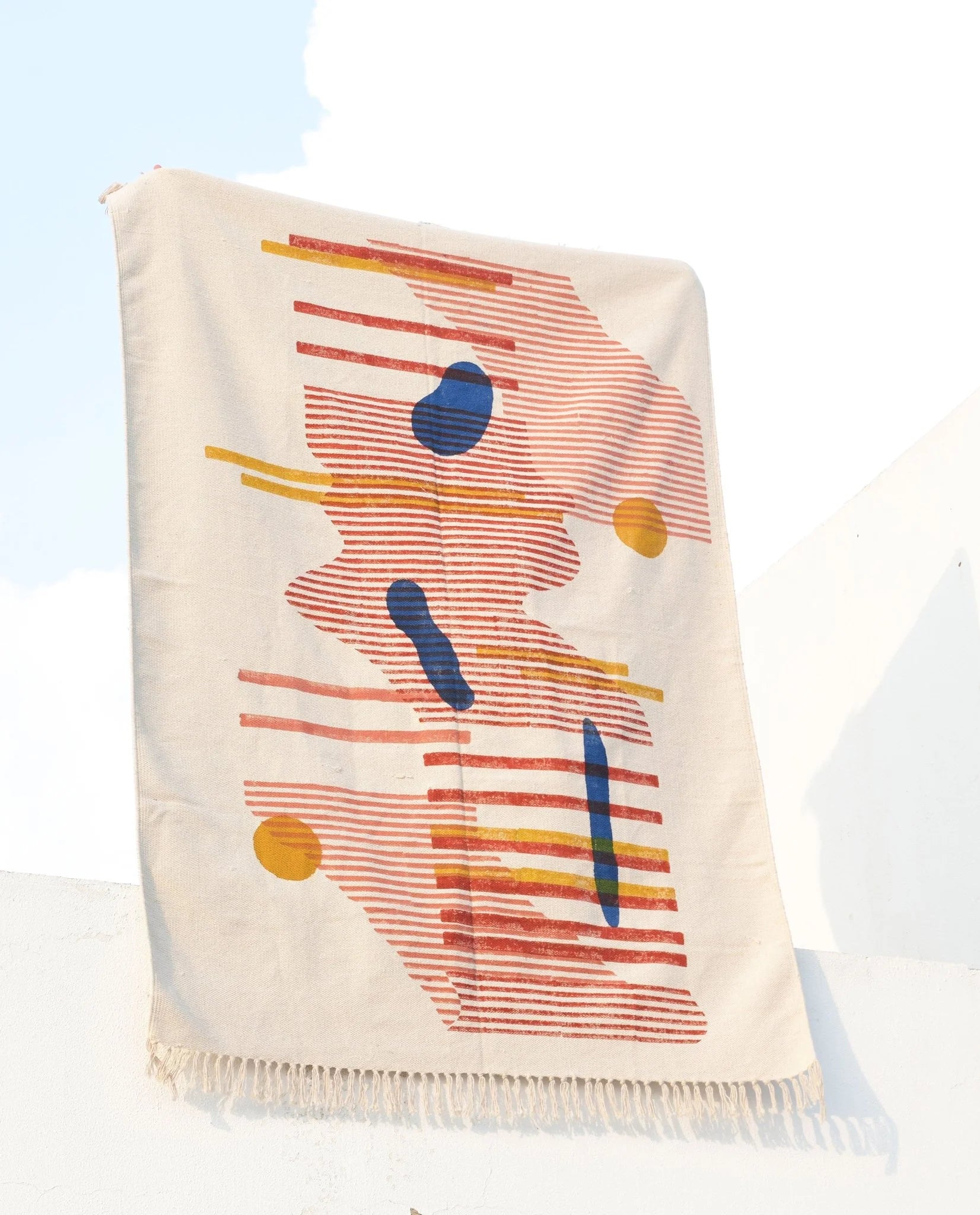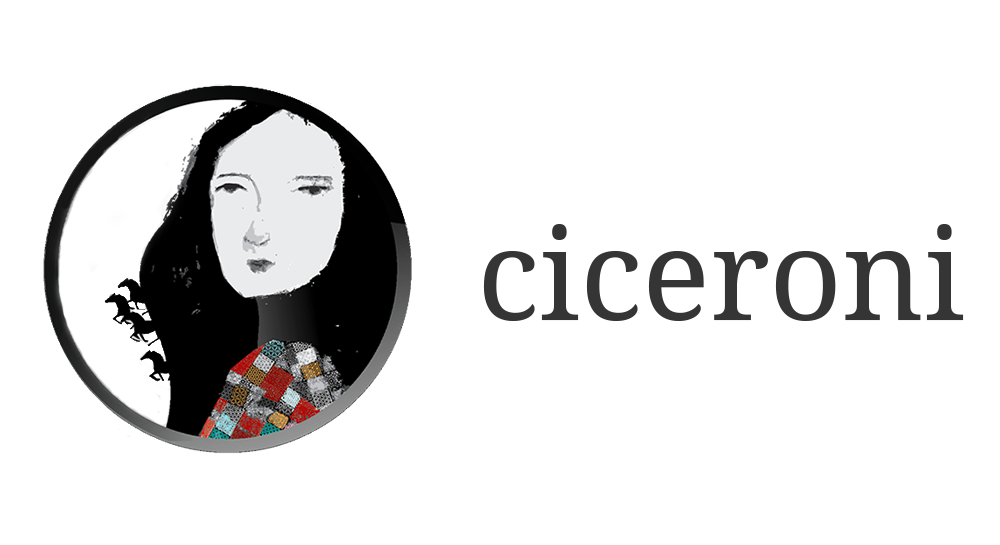What if you knew that the rulers of history were far more enamoured by the delight of fragrances than us? Would that whiff of mogra be slightly more endearing if you knew that it was your holy grail to the past or would that sweet smell of loban be your idea of meditative trance? A flood of memories can whisk you away on a vacation even at the hint of words like Chandan infused ubtan paste or rose water coolers at weddings or khus laced ittar decanters waiting patiently to be picked from old walled cities of India. Did you just smell all of these in your memories right now?
That’s what fragrances do to humans, evoke an emotional response through senses. Interestingly, Mandu in Madhya Pradesh has a history filled with pursuits of pleasure in the form of a book called “The Ni’matnama, or the Book Of Delights” shared William Dalrymple in his talk titled ‘Scent and Sensuality in India’ at Arna Jharna: The Desert Museum.

Image taken from The Ni’matnama-i Nasir al-Din Shah, Originally published in 1495 – 1505.
In 1469, Ghiyath Shah succeeded to the throne of the Sultanate of Malwa, which then controlled much of the region. In his accession speech, he announced a major policy change whereby he appointed his son Nasir Shah for daily operations of the state while he would relegate himself to the pursuit of pleasures. He was done with conquering territories during his father’s rule and wanted to experience the hedonistic life. His experiences were formally recorded in Persian book titled “Ni’matnama” which currently resides in The British Library in London. This book has an elaborate documentation of olfactory delights created for the House of Pleasure ( Harems ) by Ghiyath Shah including abir paste recipe, tips on where to put sap of mango bark, wild fig bark and peepal bark on body to create amorous scents or how to rub hands with rose water always for sensuous fragrance and so on.


The romance with fragrances isn’t new to India. The Indian tradition of scent is evident as early as 3000 BC in the cities of the Indus Valley, where archaeologists have excavated distillation stills. Religious, royal and erotic practices were all connected by a common thread of aroma. Think of walks through the lanes of a South Indian neighborhood and you will be engulfed in the heady fragrances of jasmine; you will be tripping over rose or oud ittar in the crowded bazaars of Ajmer or Old Delhi and closer home, think of all the times you attended puja and were in trance with scents of gugal, loban and camphor. Scents do transport us to a different world with its intoxicating aroma.
With a history rich in indigenous fragrances that are a heady blend of Ayurveda and Arabic and Persian influences, can we relook at fragrances through the modern lens? While we all love the sophisticated and subtle fragrances straight from Grasse, packaged as premium products, wouldn’t it be rather interesting to shift gears and grab a bottle or two of these Indian memories packed with love? In last decade, few trailblazer perfumers have led this dialogue from the front and created brands that are indigenous and rooted in Indian fragrances.
Ciceroni lists three perfume brands created from India that will make you reminiscent your childhood or date nights, whatever your pick might be.
Bombay Perfumery


If you want to indulge in mogra fragrance that reminds you of your mom’s embrace, you got to try Bombay Perfumery’s Madurai Talkies perfume and if you want to smile sweetly remembering the heady scents of masala chai at tapri and conversations that ensued, you will fall in love with Chai Musk. Started by Manan Gandhi, Bombay Perfumery is a contemporary fragrance house based out of Mumbai. The brand has eight fragrances that are carefully crafted with years of experiments in capturing an intoxicating concoction rooted in India. The concept of independent niche perfumeries took off in Europe in last two decades and that prompted the founder to start one in India. Bombay Perfumery’s eau de parfum fragrances are manufactured in the French city of Grasse, the perfume capital of the world and sold through their website and multiple stores across the country.
The Perfume Library
“Is there a particular smell in your life that brings in a good memory?”

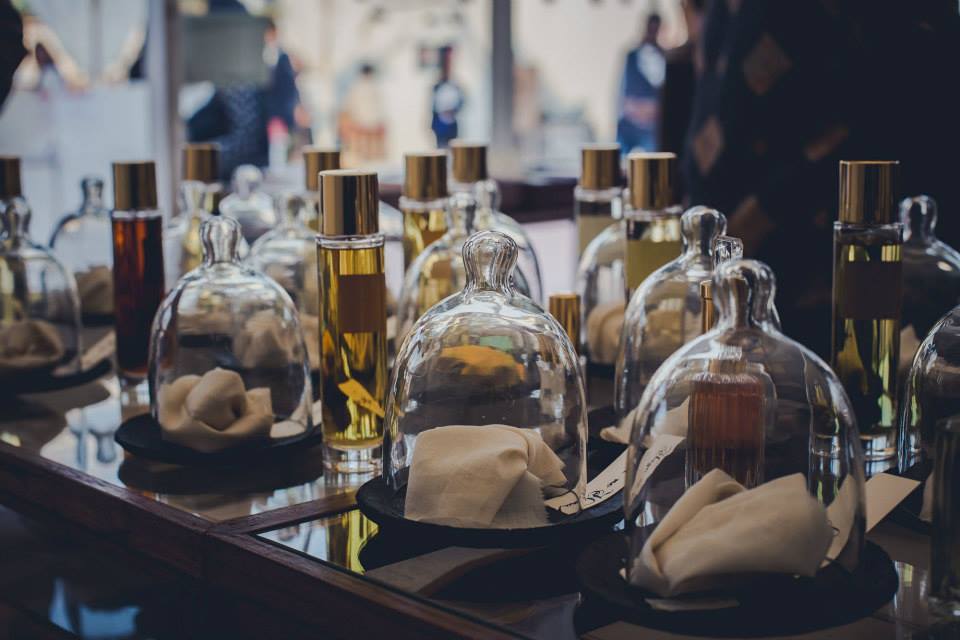
Based on this premise to create fragrances that stoke memory, Jahnvi Dameron Nandan, the founder of the Delhi-based Perfume Library, a scent-maker and a PhD in Architecture, created her own concoction called Aphtoori and Aphtoori Absolue made from Indian sambac jasmine, lavender, musk and pure grape seed oil.
She also presents a curated collection of scents including Grossmith’s classics Hasu-no-Hana (1888) and Phul Nana (1891) at her Delhi outlet. Since the 19th century, European perfumers have been sourcing many of their raw materials from the subcontinent—jasmine, vetiver, rose, cardamom, but the perfumes themselves were not available here. For Jahnvi, creating scent was about capturing memories in a bottle.
Interestingly in a conversation with William Dalrymple, this perfumer originally from Lucknow shared in 2017, ‘I’m currently using the recipes of the “Ni’matnama” to help me complete the composition. I’m waiting for the moment of inspiration when Ghiyath Shahi will help me find the right note to round it off.’ Aphtoori , her signature fragrance, has its inspiration from Ni’matnama.
All Good Scents
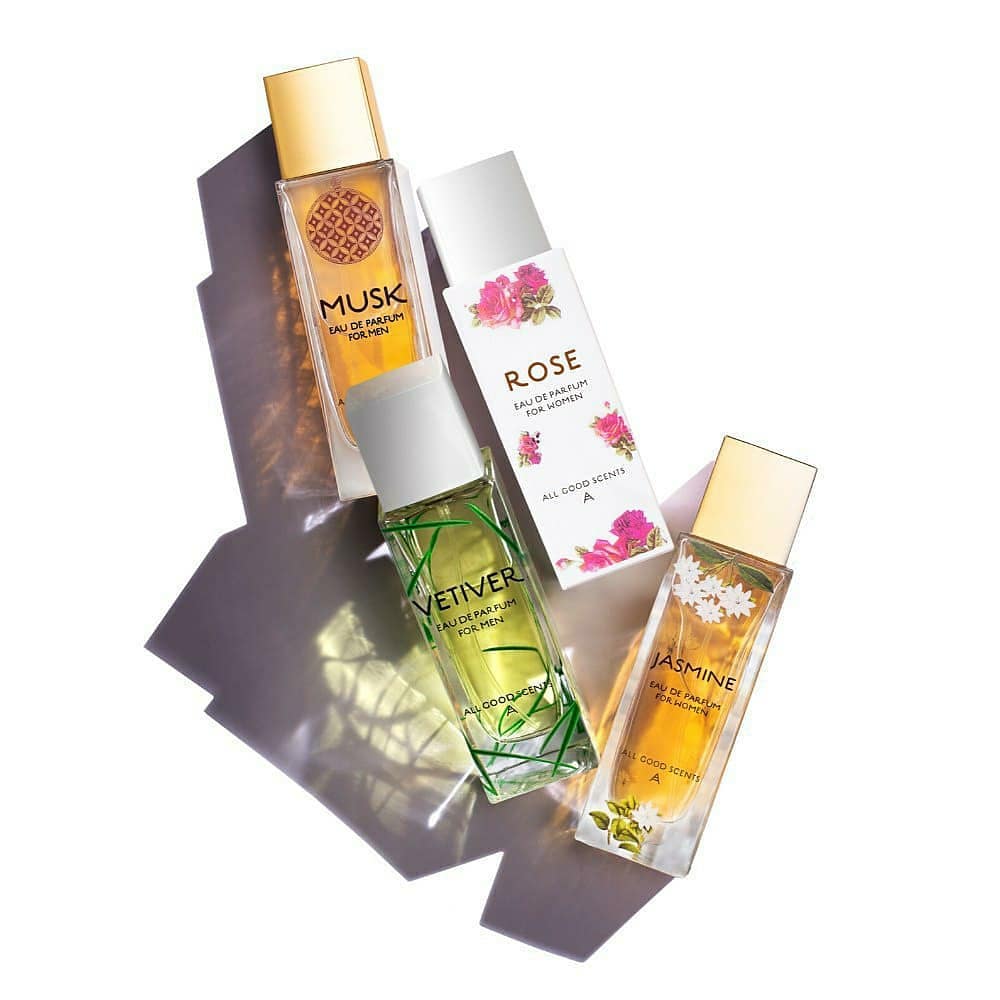
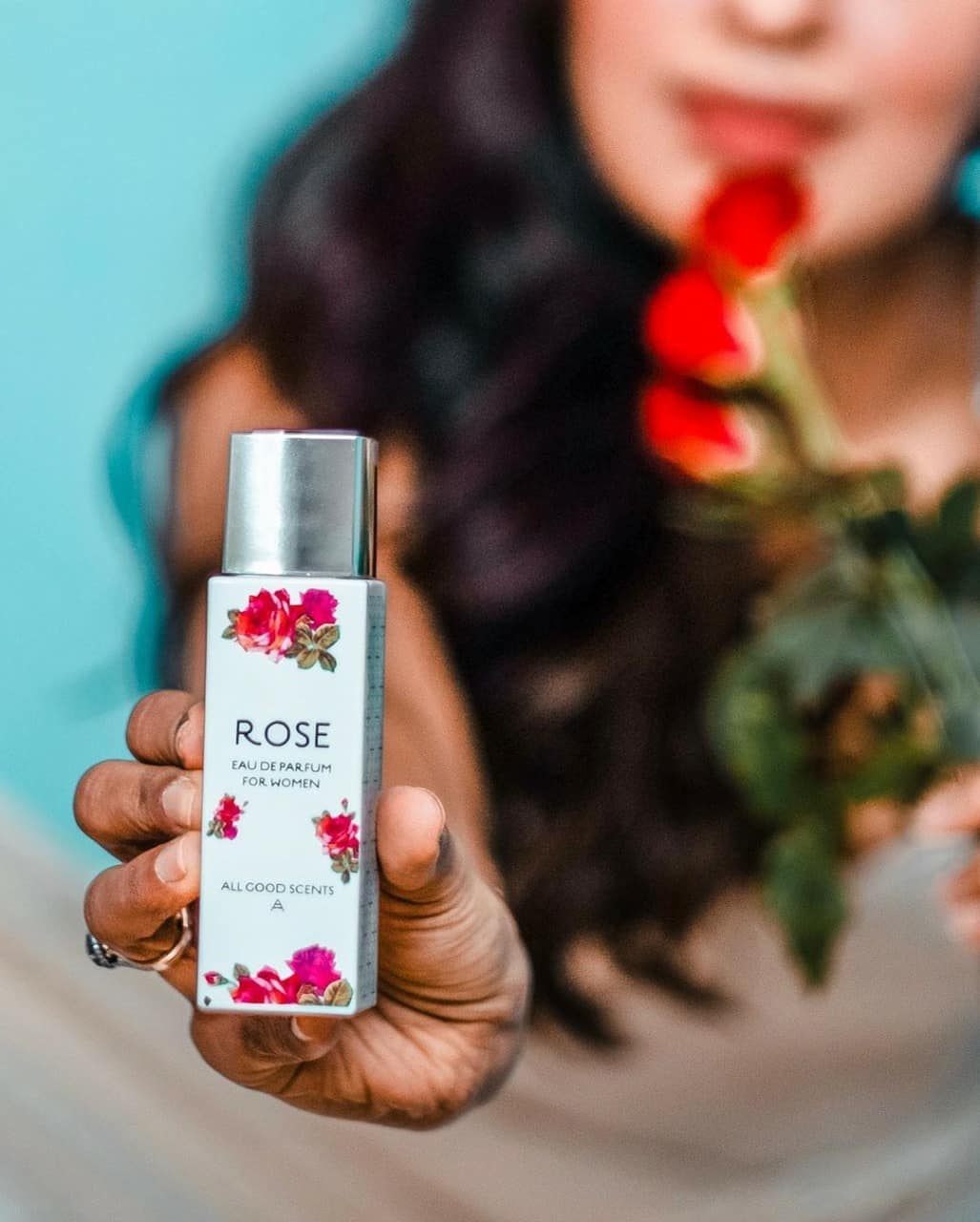
Ahmedabad based All Good Scents, founded by Rajiv Seth, has a history of generations involved in the business of exporting perfume ingredients. With more than 20 years of experience in the field of perfumes and having worked in Grasse and Paris since 1993, it was the lack of home-grown options in perfumes that led him to start All Good Scents back in 2013.
Historically, for centuries Kannauj in Uttar Pradesh has been known as the country’s perfume capital, producing the traditional ittar. A number of ingredients from India, including jasmine oils, sandalwood, and rose water, are used by luxury perfumeries around the world. But for all this rich heritage in perfumes, India never really had a home-grown perfumery brand with a global appeal. Envisioned as a way to introduce Indians to high-quality fragrances at an affordable price, the company was launched in 2013 with a range of 14 fragrances produced in Grasse, France, bottled locally, and available online. For those who love Indian fragrances, Rose, Jasmine, Vetiver and Musk will your answer besides the mélange of other sophisticated fragrances.
There are other brands like Kama Ayurveda, Forest Essentials and Paro by Good Earth that are charting the paths for wellness oils true to Indian Ayurveda. But when one talks about perfumes, its these three brands that are making a name for themselves in the niche perfumery space in India.
Before you go reminiscing the fragrance of cardamom that filled the room when your grandmother opened her batwa, we suggest head over to these three heady brand pages to bring home a slice of nostalgia.
Perfumes and fragrances are afterall important to the life of the true hedonist as much as it being the matter of refined connoisseurship.






